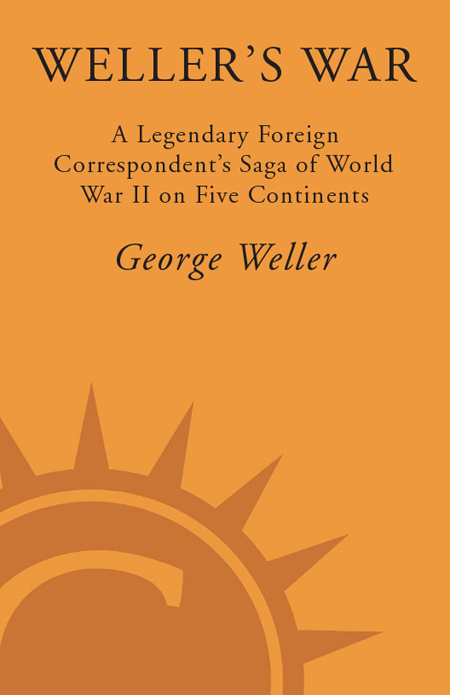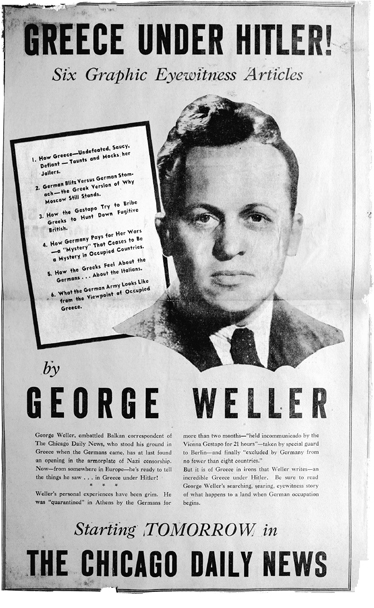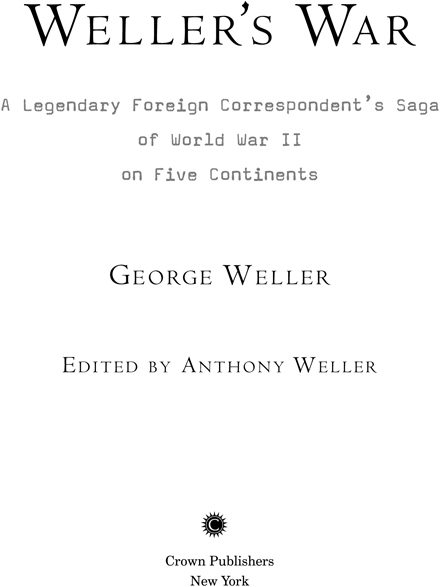George Weller - Wellers War: A Legendary Foreign Correspondents Saga of World War II on Five Continents
Here you can read online George Weller - Wellers War: A Legendary Foreign Correspondents Saga of World War II on Five Continents full text of the book (entire story) in english for free. Download pdf and epub, get meaning, cover and reviews about this ebook. year: 2009, publisher: Crown, genre: Detective and thriller. Description of the work, (preface) as well as reviews are available. Best literature library LitArk.com created for fans of good reading and offers a wide selection of genres:
Romance novel
Science fiction
Adventure
Detective
Science
History
Home and family
Prose
Art
Politics
Computer
Non-fiction
Religion
Business
Children
Humor
Choose a favorite category and find really read worthwhile books. Enjoy immersion in the world of imagination, feel the emotions of the characters or learn something new for yourself, make an fascinating discovery.

- Book:Wellers War: A Legendary Foreign Correspondents Saga of World War II on Five Continents
- Author:
- Publisher:Crown
- Genre:
- Year:2009
- Rating:4 / 5
- Favourites:Add to favourites
- Your mark:
Wellers War: A Legendary Foreign Correspondents Saga of World War II on Five Continents: summary, description and annotation
We offer to read an annotation, description, summary or preface (depends on what the author of the book "Wellers War: A Legendary Foreign Correspondents Saga of World War II on Five Continents" wrote himself). If you haven't found the necessary information about the book — write in the comments, we will try to find it.
Following the Nazi seizure of Eastern Europe and his own quarantine in Greece by the Gestapo, George Weller accompanies Congolese troops freeing Ethiopia for Haile Selassie. He remains in doomed Singapore until the colony falls. On Java, he watches brave American ghter pilots delay the islands collapse. Strafed by Japanese planes, he escapes by small boat to Australia. He covers the Pacic, from the Solomon Islands to the jungle hell of New Guinea. Back in Europe he sees a liberated Greece beset by civil war, then crosses the Middle East. In Burma, he risks guerrilla raids behind enemy lines. At the wars close, he hurries from China to a defeated but uncowed Japan, where new horrors await.
And he struggles throughout against a tireless adversarycensorship. Vivid and heart-stopping, the dispatches of World War II reporter George Weller are as intimate, memorable, and relevant today as they were nearly seventy years agoand demonstrate what it meant to be a foreign correspondent long before the era of satellite phones and the Internet.
George Weller: author's other books
Who wrote Wellers War: A Legendary Foreign Correspondents Saga of World War II on Five Continents? Find out the surname, the name of the author of the book and a list of all author's works by series.










